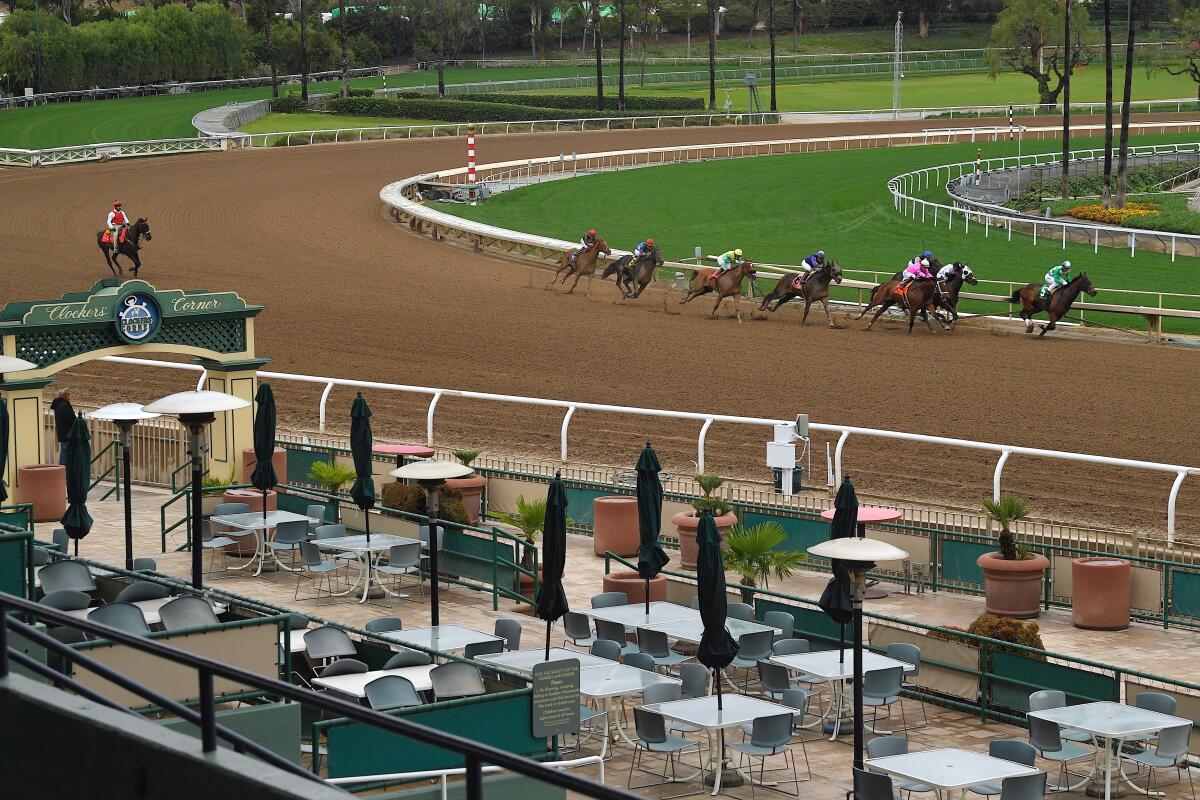U.S. House passes horse racing safety bill

National legislation designed to standardize medication and safety protocols in horse racing unanimously passed the House of Representatives on Tuesday. A form of the Horseracing Integrity and Safety Act has been around since 2015, but it never had the traction to make it onto the House floor until this year.
Sen. Mitch McConnell (R-Ky.) has introduced the same bill in the Senate, although there is no date set for committee markup or a vote. It is expected to pass before the end of the year.
The House bill was introduced by Paul Tonko (D-N.Y.), who represents the area around Saratoga, and Andy Barr (R-Ky.), who represents the area around Keeneland and horse farms near Lexington.
The bill has support from all the major racetrack organizations and animal welfare groups. It is, though, a concept with some broad principles rather than a specific plan to be executed at the state level. Currently, there are 38 different jurisdictions that regulate horse racing.
“[Tuesday’s] historic passage … by an overwhelmingly favorable bipartisan vote reflects broad industry support of much-needed national standards for anti-doping and medication control as well as racetrack safety,” said Alex Waldrop, president and chief executive of the National Thoroughbred Racing Assn.
While the idea is to standardize rules and regulations across the country, there appears to be some room for states to impose their own rules, which would no longer make it a national standard. If horse racing is truly standardized, some jurisdictions may have to relax their regulations.
New Jersey, for example, recently outlawed the use of the riding crop, also called a whip, except in the case of safety. It’s the most strict rule in the country. A new whip rule goes into effect in California on Thursday in which a horse can be struck no more than six times and only in an underhand motion.
The Horsemen’s Benevolent and Protective Assn., which represents about 30,000 owners and trainers, has been the most vocal in its opposition to the bill. Among its objections is the proposed banning of the drug Lasix, which is used to treat exercise-induced bleeding from the lungs. The HBPA contends there have not been enough veterinary studies conducted to justify this move.
Sen. Dianne Feinstein (D-Calif.) is one of the co-sponsors of the Senate bill, but the California Horse Racing Board has reservations about the bill’s passage. At Thursday’s CHRB meeting, Executive Director Scott Chaney expressed concern that standards could be relaxed or that the highly respected UC Davis laboratory might be shut out of testing if it is taken over by the U.S. Anti-Doping Agency as the bill proposes. The board, though, has not taken a formal position on the matter.
Also on Tuesday, Gov. Gavin Newsom signed two bills that codified many protocols that the CHRB had recommended and have already been instituted since the increase in horse deaths last year at Santa Anita. The bill also expands veterinary oversight of horses.
In December, the CHRB offered 24 statutory and policy changes for implementation. At that time, 11 of them were already out for public comment. Since then, several have been approved or in the process of being approved.
“The horse racing industry must accept and adopt forward-thinking solutions as the health and welfare of the sport’s human and equine athletes are paramount to their future in California,” Newsom said in a statement. “These bills are an essential step to create a safer and more transparent horse racing experience for everyone involved and can serve as a model for other states to follow.”
One of the bills requires the CHRB to publish horse fatality statistics on a weekly basis. The CHRB has been publishing this information on a daily basis, except on weekends, since the start of the year. The bill also requires the CHRB to post nonconfidential drug tests within five days.
More to Read
Go beyond the scoreboard
Get the latest on L.A.'s teams in the daily Sports Report newsletter.
You may occasionally receive promotional content from the Los Angeles Times.











